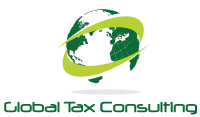Many Americans organize corporations and partnerships to do business in a more effective way. Both type of businesses are considered pass through structures where the owners or partners can legally avoid double taxation. More than sixty percent of all corporations in the US file an S corporation return or Form 1120-S. At the same time more and more partnerships are being formed and file Form 1065s. Limited Partnerships, Limited Liability Companies and Limited Liability Partnerships file partnership returns. A partnership can also choose to be treated as a corporation and file 1120S instead of 1065.
Business have to consider the following issues in reference to federal and state tax laws: All business income, compensation paid to shareholders or partners for their services, business property and depreciation, business credits, employee compensation, health care mandate, employee retirement plans, insurance premiums, foreign assets, financial assets and many more.
The main objective of a business is to increase its bottom line while minimizing costs. Federal tax laws have many tools business owners and partners can utilize to reduce their tax burden, which can be a hefty part of expenses. The IRS also places a great importance on closer examination of 1120S and 1065 returns. That’s because some corporate owners or partners are misusing many of the tax reduction tools. It is observed that most IRS audits are triggered by shareholder/partner compensation and excess deductions/inappropriate write-offs. Such mistakes may seem to save business owners some tax dollars, but in the long run they cause more trouble that costs much more than the pseudo- savings.
The key to avoid such mistakes is to keep proper records of all business transactions and to have a accountant involved in your financial management strategy. Global Tax Consulting accountants will keep your books as clean as they can be and help reduce your tax burden while making sure you stay compliant of all federal and state laws.







